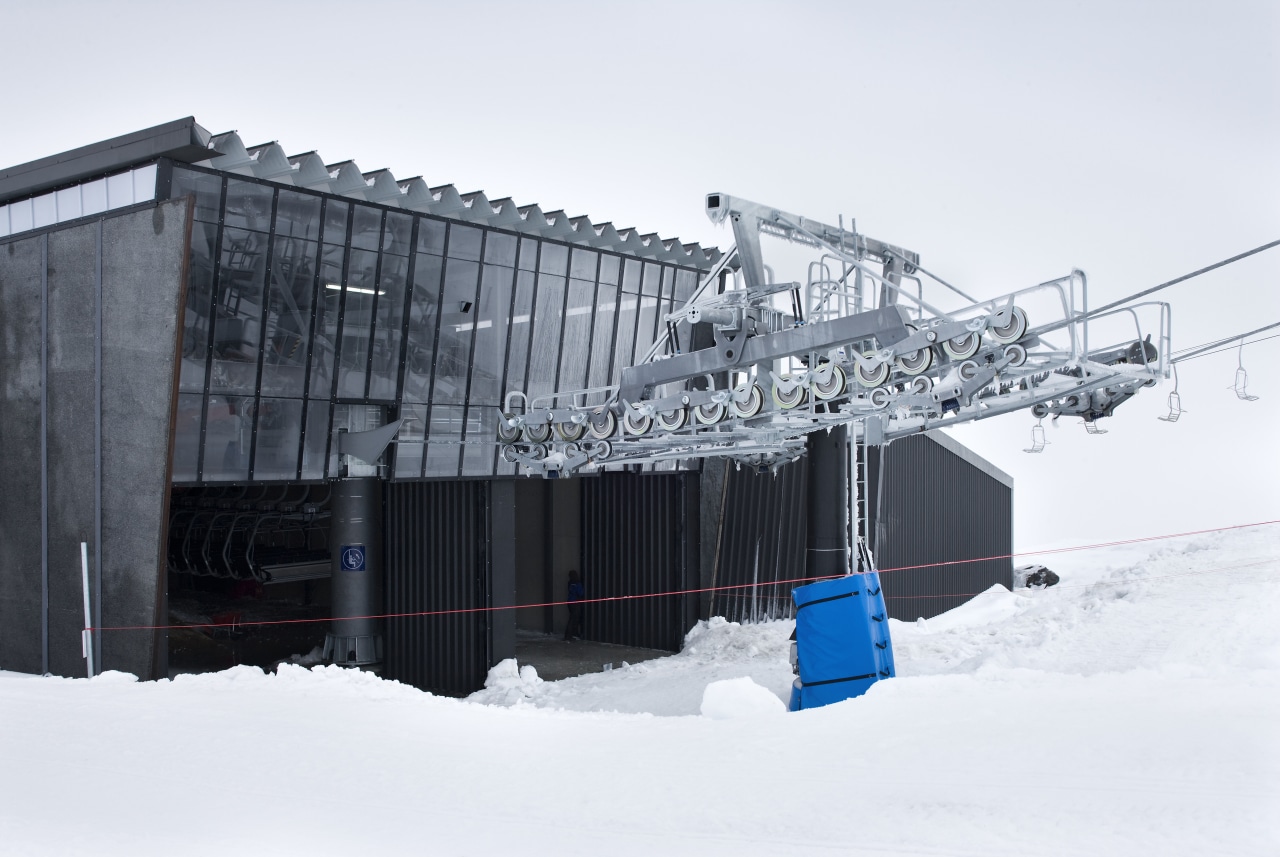alpine warrior
Building a new high-speed, six-seater chairlift in a World Heritage area requires hardy materials, environmentally friendly processes and a great deal of planning

As a protected dual World Heritage area, Tongariro National Park is a place of great beauty, with an alpine environment that faces extreme weather conditions.
For the construction of the new High Noon chairlift on Turoa Ski field, Ruapehu Alpine Lifts chose Stanley Construction, a company with 15 years' experience in building in the area. There are several factors that come into building in such an environment, says Kevin Stanley, Stanley Construction's managing director.
"In a World Heritage Area, building must be ecologically sound. Put basically, if you turn a rock over, you must then put it back in its original position. An exceptional amount of advance planning and ongoing management goes into construction of this nature."
The site's location necessitated that a helicopter fly in the components. Architects Ignite had to consider the environment when selecting materials, which were chosen for durability, colour and texture.

"Exposed aggregate concrete panels were used for the external cladding, chosen for their rustic appearance. For the upper terminal, 9mm profile steel was used for the roofing, with 10mm steel plate roofing on the lower terminal," says Stanley.
At 2300m above sea level, the top terminal of the lift is one of the highest buildings ever constructed in New Zealand. For this terminal, a 6m deep excavation with concrete foundations was created in order for the building to withstand the weather, says construction manager Craig Davison.
"The bases of the upper and lower terminals were created using reinforcing steel, and concrete that had to be flown up in skips and poured in."
Stanley employees were also required to be hardy in the building of the terminals, which was carried out between the months of January and June. Mt Ruapehu can experience its first snowfalls in February, so work was often executed in below freezing temperatures. Davison says that workers had to be very diligent to ensure nothing was left behind.

"You get one shot if you run out of bolts, it's a long walk to the carpark, and the helicopter costs $2500 per hour. We were briefed by the Department of Conservation about diesel use and the containment of rubbish. These considerations made for a complex situation."
For details, contact Stanley Construction, 79 Firth St, Matamata; 49 Main Highway, Ellerslie, Auckland, phone (09) 589 8000. Email: info@stanleygroup.co.nz. Website: www.stanleygroup.co.nz.
Story by: Trendsideas
Home kitchen bathroom commercial design


